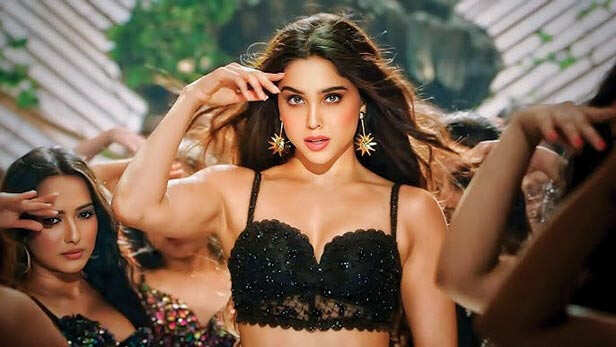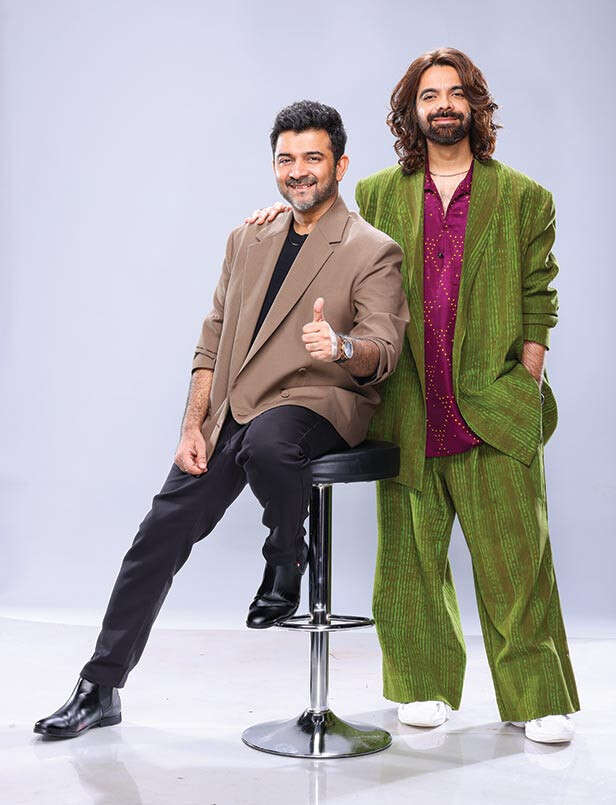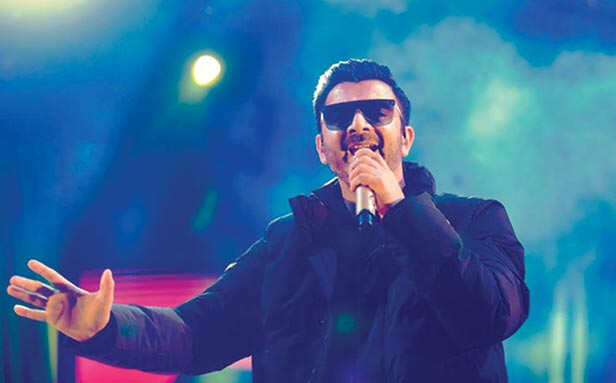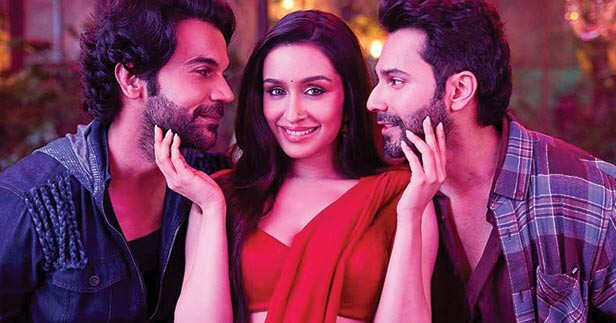Entering into Sachin and Jigar’s serene studio looks like coming into a sacred area for music. The partitions, painted in soothing shades of white and sky blue, complement the inexperienced sofas. Cabinets lined with books on music replicate the duo’s ardour and experience. As I look ahead to my flip to talk with them, a good looking voice echoes from behind a closed door, hinting at a rehearsal in progress. My ideas are interrupted when a group member calls me into their inside chamber. Excited, I enter, wanting to discover their artistic course of and listen to their insights on composing, songwriting, and the evolving Indian music panorama. Our dialog reveals not solely their inventive approaches but in addition their deep love for tradition and possession of their music.
You’re the go-to composers for horror, after creating songs for Stree, Stree 2, Roohi, Bhediya and Munjya. How do you keep away from repetition relating to horror movies?
Sachin: We’ve had our unsuccessful makes an attempt too. For instance, Roohi struggled due to COVID. We’re all the time mixing genres. We are able to’t ship 100 per cent horror; that might solely appeal to a distinct segment viewers. Our songs want a mixture of comedy and romance to attraction to households. With out the horror parts, solely the masala works. The script helps us decide the proper flavour for every track. A observe like Kamariya wouldn’t slot in Munjya. Jigar and I don’t stockpile songs; we curate and customise them for the characters and the
film’s premise.
Jigar: We knew the Stree universe would proceed, so we prevented making sequels like Milegi Half 2 or Kamariya Half 2. We didn’t wish to fall into the ‘half 2’ method.
Is there a technique to your insanity when creating hooks for songs like Char baj gaye or Beat pe booty?
Sachin: It’s simpler to debate songs like Babaji ki booti or get together tracks, although we don’t get together. We additionally write breakup songs, however we’re not trying to break up with our wives. As artistes, we adapt to no matter style we’re given. If it’s a comedy movie, we problem ourselves to discover a contemporary strategy. We don’t see song-making as a problem, whether or not it’s dance or romantic music; we view it as creating items that convey pleasure. Lyricist Amitabh Bhattacharya as soon as mentioned, “Baaki sab theek, bas chal raha hai,” and I discover myself saying that always. We attempt to seize inspiration from conversations, folklore, and on a regular basis life. It’s not all the time straightforward but it surely’s positively enjoyable.

What I’m listening to is that this isn’t only a occupation for you…
Jigar: Completely, it’s our ardour. You possibly can create a track with out ardour a few times however not persistently. Apparently, making a dance observe is commonly tougher than crafting a tragic or a romantic track. Romantic or unhappy songs resonate with individuals’s lives, making them tougher to critique. In distinction, dance songs typically face criticism for being cringe.
Sachin: Creating an excellent dance observe is critical enterprise; it wants to attach with individuals. After Kamariya in 2018, we determined to keep away from utilizing the phrase daaru in our songs. We’ve explored each angle of partying, from Chaar baj gaye to Bababji ki booti. However how do you create a celebration track with out the standard parts? We experimented with Taras and Aaj ki raat, which don’t have any get together references however are nonetheless lyrically enjoyable and fascinating. We’ve embraced the problem of creating individuals wish to dance to those tracks.
Because you talked about Kamariya, I’ve all the time questioned if you happen to deliberately pronounced it as Komoriya due to the Bengali accent, or if it simply occurred.
Jigar: (Laughs) That’s positively our selection!
Sachin: As somebody from Kolkata, you already know the dialect provides numerous enjoyable. As an example, Dance Basanti sounds a lot better than Naach Basanti. As an alternative of following traits or making our songs sound overly polished, we concentrate on incorporating genuine Indian parts, particularly from the heartland.
Jigar: Saying Kamariya feels bland, however Komoriya or Nojoriya provides that additional flavour. And talking of accents, the phrase Thumkeshwari has extra impression when pronounced with an English twist.
Sachin: We’d say darun in Bengali, however faata faati has a greater ring to it. This displays our strategy. we imagine in utilizing folks parts which are deeply rooted and pure to us. People is in our blood. Put us in a setting with our favorite folks songs and we really thrive.
That are your favorite folks songs?
Sachin: Oh, I may identify a minimum of 500 songs from Gujarati tradition alone. However it’s not simply in regards to the origin of the folks. If we had been scoring a movie set in Canada, we’d discover their folks traditions too. We purpose to dive deeper into completely different cultures as a result of folks is really on the grassroots stage. As soon as, we performed Jaise mera tu from Blissful Ending for Arijit Singh and determined to not embrace an interlude. Jigar urged that Arijit sing it with an Irish twist. When Arijit requested if he ought to do a North Irish or South Irish accent, we had been greatly surprised. I imagine that any artistic individual advantages from studying about numerous cultures and their music and that’s the angle we convey to our work.

We see numerous commercialisation with the rise of Ok-pop, and discussions typically revolve round ticket gross sales and efficiency movies. India appears to have few unbiased artistes. What’s your tackle this?
Jigar: I feel we’re making progress. Platforms like Spotify showcase many unbiased songs competing with Bollywood hits. However whereas we must always have a good time our tradition, we additionally have to evolve it. We should cross our tradition to the following technology and allow them to draw inspiration from it.
Sachin: The primary subject is that youth aren’t inspired sufficient to embrace their very own language or tradition. For instance, a Gujarati singer may get extra recognition for a Punjabi track than a Gujarati one. Recognition shouldn’t be the one measure of success; that’s only a shortcut. True change includes possession. It’s necessary to be happy with the place you come from, saying, “I’m from Gujarat and I eat dhokla.” Punjabi songs are globally well-liked as a result of Punjabis proudly embrace their language. This sense of possession is commonly missing in different components of India and that’s one thing we have to change. As creators, we’ve got to guide this alteration; I can’t simply blame others for not doing sufficient within the Gujarati music scene.
Jigar: Individuals within the South take pleasure of their tradition. As an example, in Chennai, singing Suprabhatham within the morning brings pleasure. I can put on a lungi like Rajinikanth at award features or weddings and nobody will blink an eyelid. It’s essential for individuals to embrace the swag in being themselves and take pleasure of their id.
Why do you suppose Arijit Singh, regardless of being a significant star, isn’t as globally well-liked as Taylor Swift or Dua Lipa?
Sachin: It actually comes right down to possession. Can we elevate him to the purpose the place he can promote out exhibits internationally? With 1.4 billion individuals, we’ve got the potential to outnumber others. We have to embrace our tradition, languages and music extra. As mother and father, we have to train our kids to be happy with who they’re. Have a look at why singing in Punjabi is taken into account cool. It’s all in regards to the perspective. Artistes like Honey Singh and Badshah embody that pleasure and braveness. All of us have to step up and foster that very same spirit.
How do you recognise which singer suits a track?
Sachin: It’s very like casting an actor for a narrative. The singer is the actor of the track and it’s an important resolution. The movie’s lead typically has a say within the choice of the singer and should even advocate somebody. We contemplate many components when making that selection. As composers, we are able to introduce new voices, like we did with Varun Jain for Tere vaaste. Jigar all the time says you want to be in the proper place on the proper time with the proper expertise, and a little bit of luck performs a job too. There have been cases the place I believed the scratch variations of songs had been higher than the ultimate merchandise. In the end, producers even have a say as a result of well-liked singers can assist attain a wider viewers. At present, we devour music largely by way of established artistes like Arijit Singh. So, it’s not simply a creative resolution; commerce and recognition are important components too.
Jigar: Moreover, when there’s a void left by a singer like KK, whom we cherished, it’s very important to discover a new voice. There’ll all the time be a necessity for contemporary expertise to fill that hole.

Can unbiased singers make their approach up?
Sachin: Collaborations between well-liked singers and newcomers typically assist make songs extra interesting. New artistes from Punjab are additionally carving out areas in our playlists. Singers like Prateek Kuhad and Anuv Jain have made a big mark within the business.
Do you suppose India wants extra musicals like your personal Rajadhiraaj and theatres that may accommodate them?
Sachin: Completely, this alteration has to return from the highest. The NMACC theatre, the place Rajadhiraaj is taking part in, is igniting a motion that can proceed to develop. If we are able to show the worth of our work, these venues will emerge. They’ll’t cost excessive ticket costs with out delivering distinctive leisure. Theatre is our completely happy place as artistes; we’ve been concerned in it for 20 years.
Jigar: Productions like Rajadhiraaj are important undertakings. We’d like sponsors with the assets to maintain them. It’s necessary to current grandeur to the viewers and present them dwell performances.

Do we’ve got actor-musicians in India?
Jigar: Sure, we positively have them.
Sachin: We’ve curated 20 names from a listing of 60. There are actors who can sing and singers who can act. However that crossover isn’t straightforward for everybody. In Bollywood, as an example, Ayushmann Khurrana is a good instance of somebody who can really sing. Jaaved Jaaferi and Shraddha Kapoor even have singing expertise. When actors like Shraddha sing their very own songs, it provides authenticity. Theatre is our life. After exploring numerous mediums, I discover that theatre permits me to sleep peacefully at night time.
